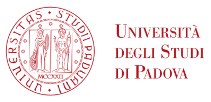
The complete Teaching Program for the Academic Year 2024-25 is available here.
Individual Training Plan
In the three years, each PhD student is required to attend the Basic Courses for a total of 80 hours, all the Soft Skill Courses, and the Advanced Courses for a minimum of 20 hours.
Each PhD student is also expected to attend the Journal Clubs (and to present at least 1 article per year), the seminars organized by the PNC (Padova Neuroscience Center), and to complete a written and oral Progress Report at the end of each year.
Objectives of the Individual Training Plan
In addition to the theoretical background, the courses are conceived to provide the skills to use the concepts/tools in the PhD student’s research project, and they should also be considered as an opportunity to explore areas that are not directly related to the PhD student’s background or research project.
The Teaching Program is intended to increase:
- the PhD student’s independence and autonomy to use the tools and the skills for carrying out their research;
- the inter-disciplinarity of the PhD student’s research (critical in our Neuroscience program);
- the ability to disseminate their research;
- the ability to understand and critically discuss the research from other neuroscience sub-fields;
- the ability to write an article in scientific journals.
Training Plan
Courses are planned as a series of lessons focused on a specific topic and usually held by the same Professor. The hours of lessons for each course range in most cases between 5 and 15.
The Teaching Program is composed of Basic Courses, Soft Skills Courses and Advanced Courses.
Each PhD student is expected to choose among the Basic Courses for a total of 80 hours; attendance is compulsory (70% minimum). Soft Skills Courses are compulsory, while each PhD student should choose among the Advanced Courses (minimum: 20 hours).
Please refer to the Teaching Activities page for the full list of Courses, syllabi and lesson calendars.
Each PhD student is expected to attend Journal Clubs and PNC seminars (minimum: 70% of attendance).
At the end of each year, the PhD students are evaluated by members of the Teaching Board. The evaluation takes the form of an interview and critical discussion on the acquired skills and their application on the PhD student’s research program.
Training Plan Activities
Compulsory Courses: Each PhD student has to choose their Basic Courses for a total of 80 hours; attendance is compulsory (70% minimum). Basic Courses ensure:
- to acquire the preliminary, necessary knowledge and skills to build and develop the PhD student’s research;
- to acquire a common background of knowledge and skills that will be important for each PhD student in order to relate with other researchers in the neuroscience field.
Sectorial / specific Courses: Each PhD student has to choose their Advanced Courses (minimum: 20 hours). Advanced Courses are highly specific and they often involve the acquisition of a technique that the PhD student will use to carry out their research.
Soft Skills Courses: Each PhD student is expected to attend Soft Skills Courses, focused on:
- Presentation skills and public outreach;
- How to write scientific papers.
The students are also invited and encouraged to attend the “PhD Educational week on Transferable skills” organized by the University of Padova.
Seminars: Each PhD student is required to attend PNC seminars (minimum: 70% of attendance), which are presentations (duration: at least 1 hour) held by experts in a particular field, characterized by an excellent track record and often coming from other universities and countries.
Group activities: Each PhD student is required to attend Journal Clubs (minimum: 70% of attendance), which are self-organized and consist of the presentation and in-group discussion of a relevant paper in the neuroscience field.
Schools: Each PhD student is allowed and encouraged to attend courses from Schools organized by international recognized academic institutions or research centers; the number of hours assigned will be commensurate to the work carried out at the School.
Other training activities: Each PhD student is encouraged to attend courses from other PhD programs or other Universities. Importantly, each PhD student is strongly encouraged to spend a period abroad for training and research.
Participation to conferences: Each PhD student is highly encouraged to attend Summer/Winter/Spring Schools as well as national and international conferences, workshops and symposia in the field of neuroscience.
Other: Training activity on specific neuroscience techniques: The PhD program offers training courses and activities specifically focused on learning of practical issues of neuroscience techniques (e.g., HD-EEG; TMS).

